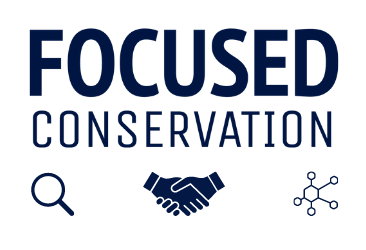The illicit finance dimensions of illegal wildlife trade (IWT) have gained unprecedented global attention. In-depth country case studies are required to tailor external support and assess how far ‘follow the money’ approaches are being effectively operationalised.
In recent years, the Financial Action Task Force (FATF) – the global anti-money laundering standard-setter – has made IWT a strategic priority, as a high-proceed generating offence.
It has done so while highlighting the extent of gaps in efforts to ‘follow the money’ generated by IWT. The FATF’s recent review of 45 jurisdictions concluded that ‘financial information is not being regularly or proactively collected, developed, and disseminated to initiate or support financial investigations into wildlife crimes’. To address this, in June 2020, the FATF urged countries to assess their exposure to IWT, ensure legislation allows for financial charges, and prioritise financial investigations in IWT cases.
Countries now face raised international expectations to track domestic progress against these actions. In October 2021, the FATF will ask jurisdictions and private-sector actors to report specifically on how they are responding.
Yet this work is often technical and it is clear that different countries embark on this task from very different baselines. Financial investigations depend on officers with strong technical expertise and capacity, who must make inquiries with private entities and other government agencies; build financial profiles on suspects and commercial vehicles; and ensure that material collected can be used as evidence.
While the value of financial tools is recognised, in practice, the complexity of such investigations can challenge officers accustomed to dealing with low-level charges of possession of physical wildlife products.
The Need for Coordinated Engagement
The specialist nature of this work explains, in part, the historically limited use of these tools in relation to IWT. It also speaks to the need for sustainable and, crucially, coordinated donor engagement to support affected states in achieving the FATF’s proposed actions.
In providing this support, donors require a clear understanding of how funds can be used most effectively to overcome key obstacles. They must also recognise that this support can be counterproductive if not aligned with the specific needs of the country or with other donor initiatives.
To ensure that external support is effectively tailored, a detailed appreciation is needed of the circumstances facing each country in efforts to mainstream financial approaches into IWT cases. These inevitably differ, with each country facing unique challenges and opportunities, based on their place in the IWT chain, institutional set up, legal frameworks and enforcement capacity.
To inform donor and NGO efforts, a strong evidence base is thus required at national level – on both the threat posed by IWT-related illicit finance and the factors influencing the response. Yet few such in-depth studies have yet been conducted.
The Ugandan Experience
To this end, in September 2021, RUSI published the most detailed independent study yet of a single jurisdiction’s experience of and response to illicit finance linked to IWT.
The focus is Uganda – a country at the crossroads of illegal flows of wildlife and associated illicit finance, and a central hub in the regional criminal marketplace. As a consolidation point for criminal actors dealing in multiple commodities, Uganda acts as a ‘one-stop shop’ for those trading in illegal wildlife and looking to launder the profits of this and other crimes.
In this context, IWT in Uganda is highly lucrative, with associated money flows found to move in at least five ways. These include transactions via the banking system, FOREX bureaus, mobile money services, trade-based money laundering and hand-to-hand in cash.
The form of transfer differs with the sums exchanged, with larger international transactions requiring more sophisticated methods to move. At all stages, the research finds, there is a need for investigators to follow the value – as opposed to a narrow focus on money – which may lie in land, property and animals.
In its response, Uganda has taken concrete, positive steps to strengthen enforcement against IWT and related money laundering. Uganda included IWT as a key financial crime risk in its 2017 National Risk Assessment – ahead of many other regional states and prior to meaningful FATF engagement on the topic. Multi-agency structures – such as the National Wildlife Crime Coordination Task Force – now incorporate agencies with financial expertise. These include Uganda’s Financial Intelligence Authority, which now regularly supports IWT investigations.
Yet these developments have not always led to results in court. Despite strong progress on convicting criminals for IWT offences, Uganda has not seen convictions for associated money laundering. The result, often, is that provisions to seize proceeds of crime go unused, and additional suspects and players in associated criminality go unidentified.
A range of obstacles have limited progress in Uganda in practice. Most prominent is an ongoing capacity ceiling – with in-depth financial investigation mentorship required. Further impediments include corruption; overlapping external programming creating confusion over the purposes of different multi-agency structures; limited engagement with IWT across Uganda’s anti-corruption architecture; and weak private sector engagement on IWT in the Ugandan context.
The Need for a Tailored Approach
Both the nature of this threat picture and the individual obstacles impeding the national response must be clearly accounted for by donors and NGOs looking to support more effective financial action. This applies in Uganda and beyond – including in jurisdictions where the threat and impediments to the national response are different and less clearly documented.
Such case studies are thus crucial to enabling the donor and NGO community to tailor support to the (inevitably differentiated) needs of each country. While the FATF’s mutual evaluation process offers individualised analysis along these lines, this is often too high level to address IWT as anything more than one of many predicate offences.
Establishing a functional national-level financial investigation set-up is not a quick or easy task. A bespoke approach is critical to moving ‘follow the money’ beyond the slogan, enabling tangible criminal justice outcomes in practice.
Cathy Haenlein is Director of the Organised Crime and Policing research group at RUSI and Chair of the Strategic Hub for Organised Crime Research.
Main image credit: Dids, via Pexels.
The views expressed in this article are those of the author and do not necessarily reflect the views of RUSI, Focused Conservation, or any other institution.



